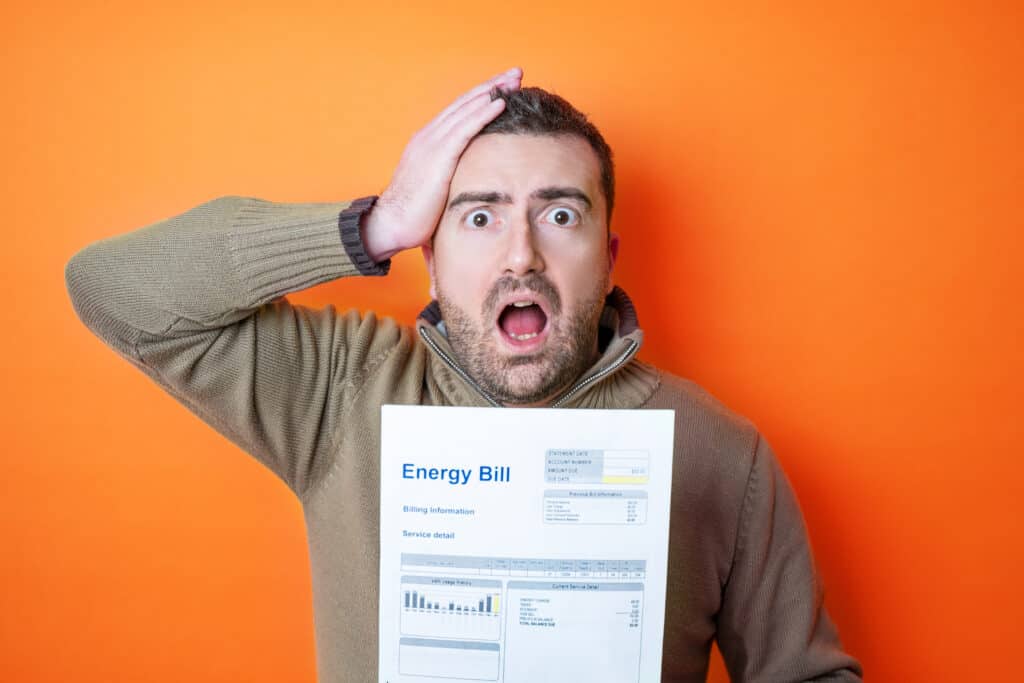Any product or company names, marks, or logos shown on this page are the property of their respective owners. ComparePower is an unaffiliated, independent marketplace. Get unbiased, accurate information backed by our commitment to editorial integrity.
Texas Energy Deregulation
Texans use more electricity than ever, and retail electricity providers deliver power to millions in the state.
The market has been able to absorb this massive increase in demand through the free operations of the market, not direct government controls.
Energy deregulation in Texas has helped create a robust competitive marketplace that can meet the public’s electricity needs while giving you the power to choose your home’s electricity provider.
ComparePower is a consumer service established in 2009 to assist residents of Texas in shopping for their best energy plan.
The official Texas electricity rates you will find on ComparePower are the same rates you’ll find calling the energy companies or visiting their websites.
Offers from competing electricity companies are presented in an easy-to-understand format, making comparing your options simple and fast.
This helps Texas consumers avoid hidden fees and advertising gimmicks by comparing plans “apples-to-apples” without wasting hours making phone calls, spreadsheets, or navigating dozens of different company websites.
Building Blocks of Deregulation
Texas has a long cultural history of independence and freedom of personal choice.
So, it’s no surprise that the state was among the first in the nation to free its electrical power grid from government control.
The first power plant in Texas was built in Galveston in the 1880s, just as the nation began rebuilding after the Civil War.
Dozens of electricity generation facilities followed, primarily relying on the state’s mighty rivers and streams to generate ample hydroelectric power.
Texas cities were electrified quickly; by the 1890s, most major cities were aglow with electrical lighting.
As anyone who has ever lived in or visited the state knows, Texas has vital natural resources.
By the end of World War II, more than one million Texan homes were connected to the electrical grid.
By the late 1960s, Texas had harnessed these resources into a robust electrical grid capable of providing power across the entire state.
So, in 1970, the State created the Electric Reliability Council of Texas, or “ERCOT.”
Since then, ERCOT has been responsible for managing the Texan electrical grid.
As part of this responsibility, ERCOT passes rules and regulations about electric utilities in Texas.
This includes both consumer protection policies and public safety measures.
In 1975, the Texas legislature enacted the Public Utility Regulatory Act (“PURA”), which gave the State greater authority to regulate electricity rates and services.
Before PURA, cities throughout Texas were individually responsible for regulating their respective electricity rates and services.
Thus, PURA represented a significant change in Texas’s electricity regulation.
Rather than allowing electric companies to compete and deal with local communities individually, PURA allowed the state government to control electricity services.
Unfortunately, state regulation of energy markets didn’t go well under PURA.
Electricity rates skyrocketed after PURA’s enactment, mainly due to an inflated market and the need for increased electric capacity.
This prompted the Texas legislature to act again to deregulate the electricity market, hoping to decrease electricity costs for Texan consumers statewide.
Then, George W. Bush, Governor of Texas, strongly supported electricity deregulation in the 1990s.
“Competition in the electricity industry,” he claimed, “will benefit Texans by reducing rates and offering consumers more choices.”
This sentiment, shared by many in the Texas legislature, guided Texas’ energy marketplace toward deregulation.
Deregulating the electricity market
As a result, the Texas legislature passed two laws to deregulate the state’s electricity market.
First, in 1995, the Texan legislature passed Bill 373, which changed ERCOT’s responsibilities regarding utility regulation.
While Bill 373 represented a critical policy shift, it didn’t completely dismantle the state’s stronghold on electricity markets as the legislature had hoped.
For this reason, the State passed Senate Bill 7 in 2002.
Senate Bill 7 fundamentally altered how Texans get their electricity.
Before this law, electricity rates were tied by law to the cost of fuel.
Public utility commissions owned electric plants, lines, and entire customer distribution networks rather than private enterprises.
The Texas legislature hoped that restoring privatization and reducing regulations in the energy market would create a more competitive marketplace.
With higher competition, customers would see lower rates.
Despite widespread political support, complete deregulation of Texas’ electricity market wasn’t easy.
ERCOT, the entity responsible for implementing deregulation, faced early challenges shifting its internal operations to accommodate its new tasks.
In fact, on the day that the deregulation pilot project began, ERCOT experienced system failures.
Power companies sent switch requests to ERCOT, whose computer systems could not process them.
Instead, ERCOT officials had to utilize manual workarounds rather than the fully automated systems they were meant to rely on.
This setback led to significant delays in electricity services, and electricity prices started to spike in response to the volatility.
Fortunately, however, the rough start to deregulation has given way to a smoothly-operating industry.
Nearly all Texas power customers can choose among several retail electricity providers when deciding on their electric company.
Since Senate Bill 7 fully deregulated Texan power markets in 2002, customers have embraced the freedom to select electricity service providers.
More and more service providers are coming online, making rates even more competitive and tailored to local needs.
Over the past fifty years, energy regulation in Texas has shifted from local regulation to statewide regulation and finally to deregulation.
Texas deregulated its energy market to help make sure Texans have access to electricity at a competitive market price.
As a result, Texans across the state can now enjoy the benefits of competitively-priced electricity without the burdens of excessive government controls.
Call us at 855-441-3030 Monday through Friday, 8:30 a.m. to 6:30 p.m., or Saturday, 9:00 a.m. to 4:30 p.m.


 Compare Rates Near You
Compare Rates Near You 






